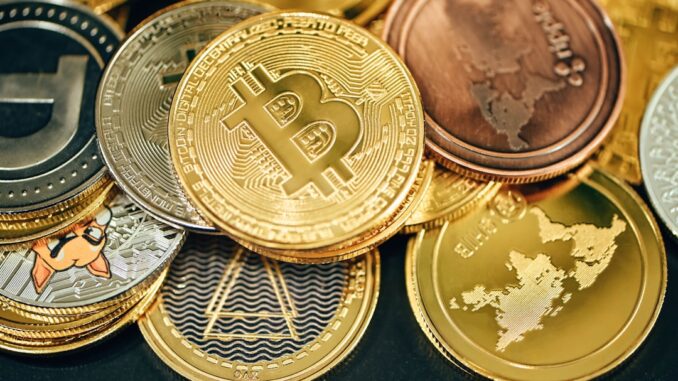
In a decisive move, the Bank of Korea (BOK) has firmly rejected the inclusion of Bitcoin in its foreign exchange reserves. The central bank’s decision stems from significant concerns regarding the cryptocurrency’s inherent volatility and associated liquidity risks. This stance underscores South Korea’s commitment to maintaining financial stability and adhering to established international standards.
Volatility and Liquidity Concerns
Bitcoin’s price fluctuations have been notably erratic, with recent swings from a high of $108,000 to a low of $76,000, before stabilizing around $84,000. Such volatility poses challenges for reserve management, as converting Bitcoin to cash during market instability could lead to substantial transaction costs. The BOK emphasized that in the event of cryptocurrency market instability, “transaction costs to cash out Bitcoins could rise drastically,” highlighting the impracticality of using Bitcoin as a reserve asset.
Alignment with IMF Standards
The International Monetary Fund (IMF) sets stringent criteria for reserve assets, including liquidity, marketability, and investment-grade credit ratings. Bitcoin fails to meet these standards, primarily due to its speculative nature and lack of universal acceptance among central banks. The BOK’s decision reflects a cautious approach, prioritizing assets that ensure economic stability and align with international financial guidelines.
Investor Identification, Introduction, and negotiation.
Global Context and South Korea’s Position
While some nations, such as the Czech Republic and Brazil, have considered incorporating Bitcoin into their national reserves, South Korea remains steadfast in its approach. The BOK’s rejection mirrors similar stances taken by other major financial institutions, including the European Central Bank and the Swiss National Bank, which have also expressed reservations about Bitcoin’s suitability as a reserve asset.
Exploring Central Bank Digital Currencies (CBDCs)
In contrast to its position on Bitcoin, South Korea is actively exploring the development of a Central Bank Digital Currency (CBDC). The BOK plans to launch a real-world transaction experiment for its retail CBDC, involving around 100,000 participants who will convert their bank deposits into a digital currency called “deposit tokens.” This initiative aims to assess the practical application of a CBDC in everyday transactions, reflecting South Korea’s interest in digital currencies that offer technological benefits while maintaining stability and central control over the monetary system.
Conclusion
The Bank of Korea’s decision to exclude Bitcoin from its foreign exchange reserves highlights the challenges central banks face in integrating cryptocurrencies into national financial strategies. While Bitcoin’s potential as a digital asset is recognized, its volatility and liquidity issues render it unsuitable for reserve purposes. South Korea’s cautious approach underscores the importance of stability and adherence to international standards in reserve asset management.
References
-
Bank of Korea Rejects Bitcoin as Reserve Asset Citing Volatility Concerns. Bankless Times. March 17, 2025. (banklesstimes.com)
-
Bank of Korea Rules Out Bitcoin as a Strategic Reserve Asset. ETHNews. March 17, 2025. (ethnews.com)
-
South Korea’s Central Bank Rules Out Bitcoin Reserve Possibility. The Block. March 16, 2025. (theblock.co)
-
Bank of Korea Rejects Bitcoin Over Volatility Risks. Watcher Guru. March 19, 2025. (watcher.guru)
-
Bank of Korea (BOK) Rejects Bitcoin Reserve Due to Price Volatility. Cointab. March 17, 2025. (cointab.com)
-
Bank of Korea Rejects BTC Reserve, Announces CBDC Tests. CoinGeek. March 17, 2025. (coingeek.com)
-
Strategic Bitcoin Reserve (United States). Wikipedia. (en.wikipedia.org)
-
South Korea Dismisses Establishing Strategic Bitcoin Reserve. Bitcoin Magazine. March 17, 2025. (bitcoinmagazine.com)
-
South Korea’s Central Bank Rejects Strategic Bitcoin Reserve Amid Political Crypto Push. Medium. March 2025. (solanaseahorse.medium.com)
-
Bank of Korea Rejects Bitcoin for Foreign Exchange Reserves. Crypto Times. March 17, 2025. (cryptotimes.io)
-
Bank of Korea Says No to Bitcoin as a Reserve Asset. Bitcoin News. March 18, 2025. (bitcoinnews.com)
-
South Korea Rejects Bitcoin for National Reserves. Observer Voice. March 2025. (observervoice.com)
-
IMF Standards and Cryptocurrency Concerns. Observer Voice. March 2025. (observervoice.com)
-
Bank of Korea to Take ‘Cautious Approach’ to Bitcoin Reserve. Cointelegraph. March 17, 2025. (cointelegraph.com)


Be the first to comment